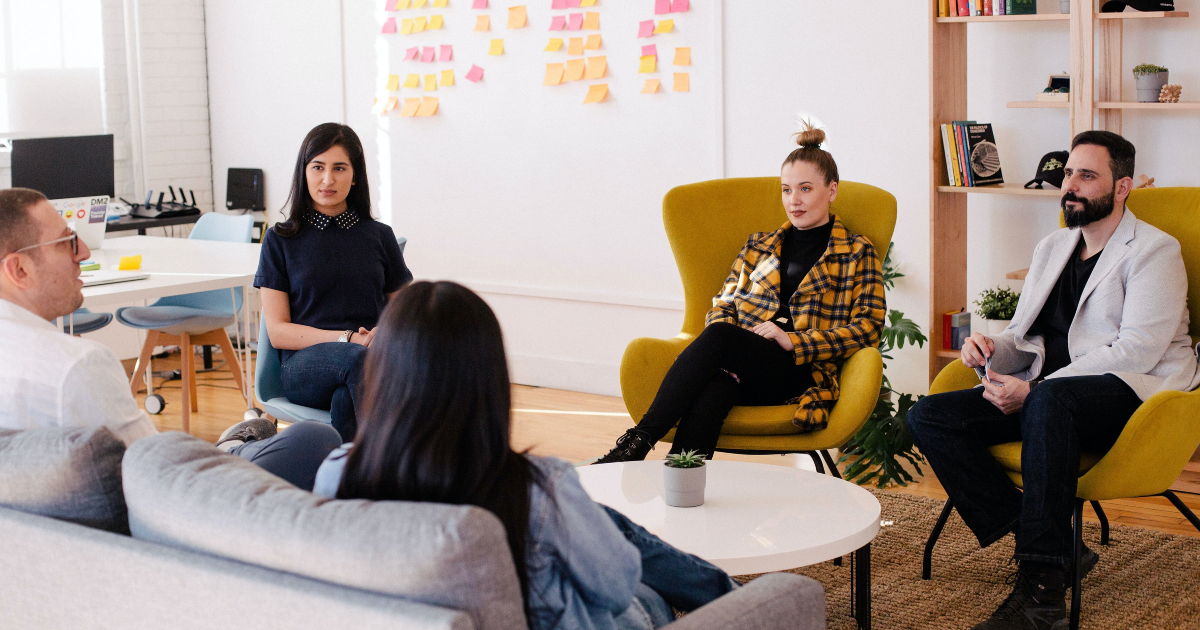What Is a Focus Group?
Focus groups can be used to conduct research. Focus groups allow only a small number of people to answer questions in controlled environments. Focus group participants are selected based on their demographic characteristics. Questions about specific topics are also asked.
One type of qualitative research is focus groups. Focus groups are one type of qualitative research. Later, conducted groups are used to observe group dynamics, respond to questions, and even use body language. These data can be used to guide future research on consumer decisions, products, and services, as well as controversial topics.
Focus groups are used frequently in marketing, library science, and social science. Focus groups can provide more nuanced and natural feedback than individual interviews, and they are much easier to set up than large-scale surveys or experiments.
Focus Groups Have Both Advantages and Disadvantages
Advantages:
- Researchers have less control over subjects so that the weight can have attention
- This allows you to observe the social interactions of others. This will enrich your data and correct individualistic biases during one-to-one interviews. It also allows you to account for the social construction of meaning.
- Participants can control the discussion and move the conversation to relevant topics
- This is particularly useful when researching people who feel their opinions are not valued. This could be socially excluded workers or groups that don’t respect their views.
Disadvantages:
- Groupthink may be a problem where the dominant group view can dominate individual expression
- Some members may dominate others, while others might be shy
- Personal opinions may distort the result
- It is impossible to generalize the results of one focus group
When Should a Focus Group Be Used?
- Consider these factors when you’re considering introducing a new program/service
- If you have questions that cannot be answered or asked in a written survey, then a focus can be used for it
- Written surveys are a great way to add knowledge
- If you have a friend or acquaintance who is a skilled leader of groups
- If you have the resources, time, and knowledge to recruit willing participants for your focus group
How to Conduct Focus Groups

The ideal team for a focus group includes a moderator and an assistant moderator. The moderator leads the discussion while the assistant takes notes and runs a tape recorder.
These are the traits of a great moderator for a focus group:
- Can listen attentively and show empathy
- Can listen and think simultaneously
- Believes everyone can contribute to the group, regardless of their education, experience, and background
- Facilitators can keep their personal views and ego away from the facilitation
- Are they, someone the group can relate to and give authority to?
- Can they manage complex group dynamics effectively
The assistant moderator should be able to do the following:
- Use a tape recorder to capture the session
- Keep a recorder handy if it fails or the tape stops working
- Take note of body language and other subtle but pertinent clues
- Let the moderator do the talking while the group is going
Participants are expected to be greeted by the moderator or assistant moderator, who will then help them set up name tents and guide them through filling out pre-group paperwork.
Name tents should identify participants. A number is mainly written anonymously for anonymity.
All participants must sign a consent form. A Human Subjects Committee may be required for approval if the focus group involves a university partner or is part of more extensive research studies.
If demographic data is essential for correlation with focus groups’ findings, collecting this information from participants may be necessary. A half-page form should take 2 or 3 minutes to complete. Before the focus group starts, administer it.
Discussion in Focus Group

Starting a focus group discussion within the first few minutes is crucial. The moderator should create a relaxed, open atmosphere and establish the tone for the debate in a short time. This open atmosphere is a critical factor in group interviewing’s success.
For group discussions, the recommended format is (1) Welcome, (2) Overview of the topic, (3) Ground rules, and (4) First question. Here’s an example of how to introduce the group discussion:
- We are pleased to welcome you to our session. We appreciate you taking the time to speak with us about the educational programs available in our county. Tom Olson is my assistant, and my name is Dick Krueger. Both of us are with the University of Minnesota. Sara Casey, a local extension officer, asked us to assist her in gathering information from county residents about our perceptions regarding local extension efforts. They are interested in your opinions on local extension efforts and what you think could be improved. This is a discussion we are having with several groups throughout the county.
- An invitation is given to you because you participated in extension programs.
- There are no correct answers, but there are many points of view. Feel free to express your opinion, even if it is different from others. Remember that we are equally interested in negative comments and positive comments. Sometimes, negative comments can be the most helpful.
- You’ve probably noticed the microphone. We’re recording the session to ensure that your comments are not lost. We don’t have time to record all the helpful comments that these discussions generate. Tonight’s meeting will be the first to be named, and we won’t call anyone in our reports. You may feel confident in your confidentiality. The county extension staff will have access to your reports to help plan for the future.
- Well, let’s begin. To help us remember our names, we have placed name cards on the table. Let’s get to know each other better by going around the table. Please tell us your name and whereabouts.
Recorder (Assistant Moderator) Skills:
- Assistance with equipment and refreshments
- Arrange the room
- Welcoming participants upon their arrival
- Sit in a designated location
- Keep taking notes during the discussion
- Operate recording equipment
- You are not allowed to participate in the discussion
Focus Group Questions/Strategies:
- Select from a variety of options
- Create a list
- Please fill in the blank
- Rate for blank cards
- Semantic differential
- Daydreams, projection, and fantasy
- Draw a picture
- Develop a campaign
- Playing the role of a character
- Questions to foster ownership
What Are You Waiting for Then?

Focus groups can be used to conduct research. Focus groups allow only a small number of people to answer questions in controlled environments. Focus group participants are selected based on their demographic characteristics, and questions about specific topics are also asked.
The Pros and Cons of Groups
Do you want to collect opinions from groups or individuals? Focus groups are groups, and surveys usually only cover one person.
One advantage of focus groups is the depth and complexity of responses. Group members can often spark new ideas for one another that might not otherwise have occurred.
But beware, there are also some drawbacks.



